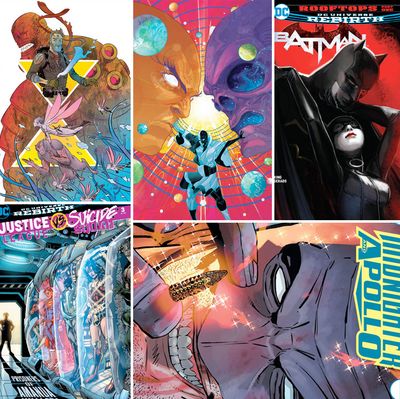
Each month, Abraham Riesman offers recommendations of comics, including book-length graphic novels, comics-format nonfiction, and ongoing series. With any luck, at least one of them will be a match for you.
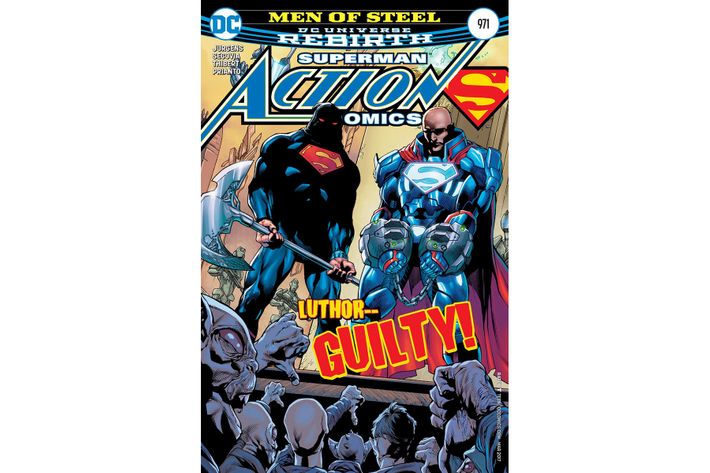
Action Comics by Dan Jurgens, Stephen Segovia, Art Thibert, and Arif Prianto (DC)
To paraphrase countless nostalgia-milking listicles published in recent years: You know you’re a ’90s kid if Dan Jurgens’s Superman stories changed your life. The venerable writer/artist was one of the Man of Steel’s leading creative minds for the massively selling “Death of Superman” arc, and Jurgens, working exclusively as the writer, has recaptured the energy of that era in his run on the recently relaunched Action Comics. The story has been deliciously mysterious and refreshingly earnest, following Supes as he tries to figure out why some non-superpowered guy who looks just like him is running around, and as he deals with the fact that a super-armored Lex Luthor has decided to become the new guardian of Metropolis. The art from Stephen Segovia, Art Thibert, and Arif Prianto is pulpy and dynamic, bringing electricity to corner offices and alien worlds alike. It’s all too rare to see superhero comics this devoid of winks and snark, but we should expect no less from Jurgens.
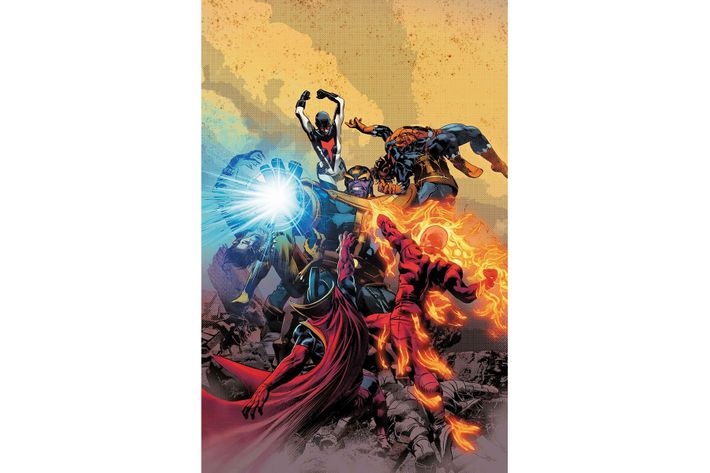
Thanos by Jeff Lemire, Mike Deodato Jr., and Frank Martin (Marvel)
Villain-led series are a sticky wicket. Sure, bad guys always get the best lines in heroic narratives, but how do you keep a reader interested if a protagonist has no moral center driving them? The challenge is even greater if you’re writing about space-faring Marvel Über-villain Thanos, given that his whole agenda is a terrifyingly nihilistic campaign to wipe out life in order to impress the cosmic personification of death. And yet, Thanos’s new solo title is off to a very promising start. That shouldn’t be so surprising, given that the men at the helm are three of the best in the business: writer Jeff Lemire, artist Mike Deodato Jr., and colorist Frank Martin. They’re weaving an appropriately operatic narrative that seeks to understand and illustrate the dignity and drive of a complete monster, which is a rarity in the current lineup of superhero tales.
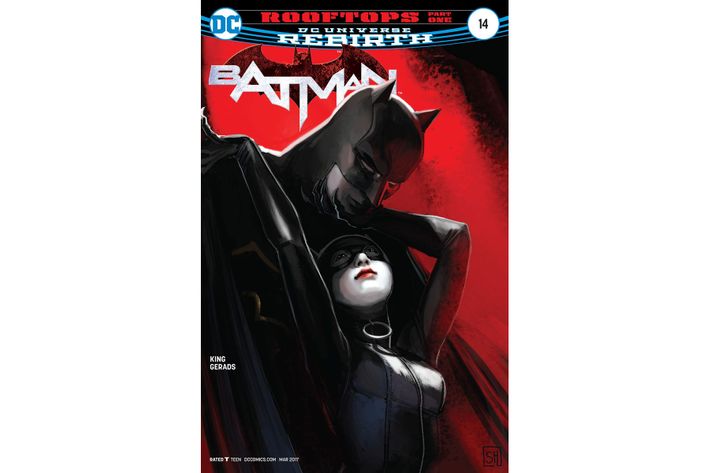
Batman by Tom King, Mitch Gerads, and Stephanie Hans (DC)
It’s been an astounding decade for the flagship Batman series. Three remarkable writers have helmed it (or spinoffs that assumed the role of flagship title): Grant Morrison, Scott Snyder, and now Tom King. King is easily the hottest writer in comics right now, having garnered tremendous acclaim for Vision, Sheriff of Babylon, and The Omega Men, and his Batman has been characteristically stellar. He’s taken the Dark Knight to some psychologically grim places, but the story has never felt overwrought or gloomy. The visuals have been magnificent (particularly in a recent issue done mostly in two-page spreads), but geeks have reason to be especially excited about the upcoming presence of artist Mitch Gerads, with whom King worked on Sheriff. The new story arc will focus a lot on Catwoman, a character King has been making solid insights about in previous issues, so it’s mouthwatering to think about what he’ll do with her archetype. Superhero fiction has its ups and downs, but Batman is forever.
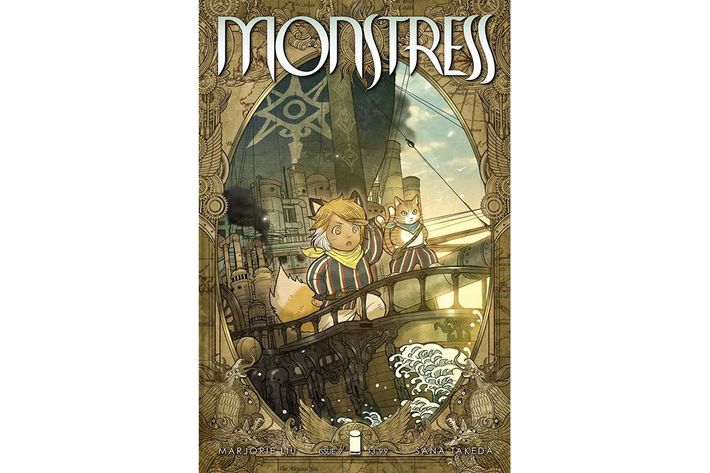
Monstress by Marjorie Liu and Sana Takeda (Image)
One struggles to imagine the elevator pitch Marjorie Liu and Sana Takeda gave for their magnificent Monstress. Steampunk manga set in a slave-labor-powered witch matriarchy? Bildungsroman about a shape-shifting refugee and her half-animal ward? Vision of a world where old gods loom, towering monsters do battle, and cats have multiple tails?
Bah, forget the descriptors and just read the damn thing. Monstress is one of the most compelling pieces of young-adult fiction to reach the comics medium in recent years, trafficking in poetic sorrow, jaw-dropping action, and Takeda’s H.R.-Giger-meets-Yoshitaka-Amano imagery. The narrative follows a war-hardened girl who becomes a coveted object in a magic-infused world where peace hangs in the balance, and its riches have only grown more plentiful as it’s gone on. But although Monstress is a ripping adventure yarn, it’s grounded in the universal struggle to be taken seriously when you’re young.
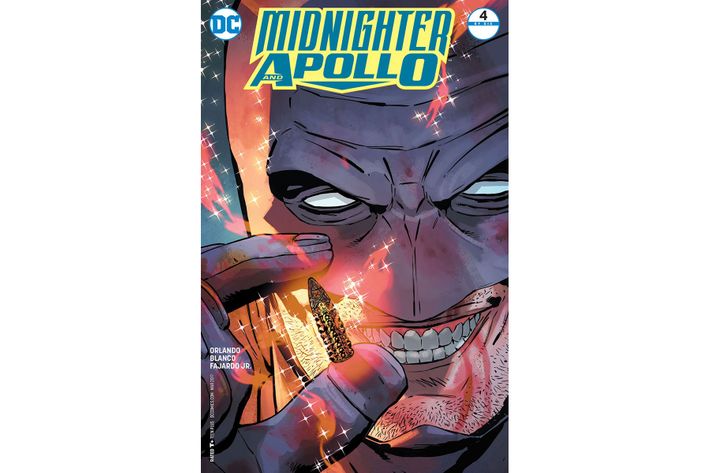
Midnighter and Apollo by Steve Orlando, Fernando Blanco, and Romulo Fajardo Jr. (DC)
I’m going to say a sentence, and if it makes you gasp with delight, you and I share a set of predilections and obsessions:
There is a comic on stands right now wherein Midnighter fights Neron, the Mawzir, and the Subway Pirates.
That comic is called Midnighter and Apollo, and those of us whose formative superhero-comics-reading years occurred around the turn of the millennium will adore it. Writer Steve Orlando was, blissfully, granted another stab at writing the DC universe’s most charmingly admirable sadist, Midnighter, after wrapping up an acclaimed solo series about the guy, and the writer has let his millennial freak flag fly. Fernando Blanco and Romulo Fajardo explosively illustrate the antihero/leather-daddy’s journey into literal, actual Hell while trying to save his lover, Apollo. Some of this stuff only fully works if you’re familiar with the past stories being referenced, but basically anyone can enjoy Midnighter’s growled one-liners, of which Orlando seems to have a limitless supply.
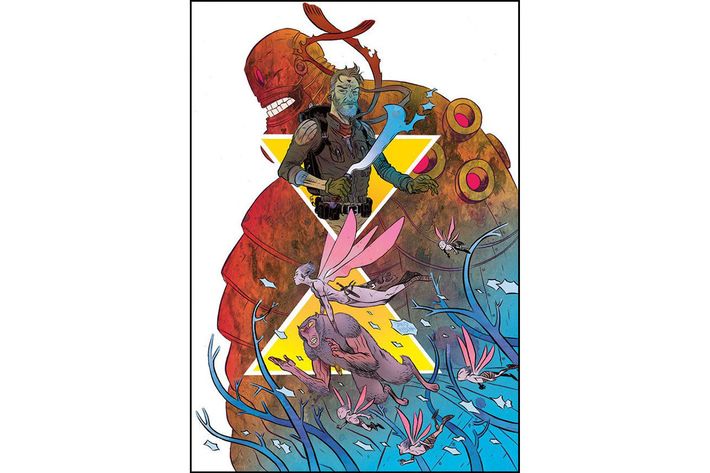
Ether by Matt Kindt and David Rubín (Dark Horse)
The writer/artist Matt Kindt has been one of the great, insufficiently appreciated heroes of the comics medium in recent years, churning out fantastic work in Mind MGMT, Rai, Dept. H, Ninjak, Unity, and his latest endeavor, Ether. He’s teamed up with artist David Rubín, a compositional wiz who manipulates time in comics with the best of them, and the resulting series is unlike anything else out there right now. We’re only two issues in, and though it’s deliberately unclear what, exactly, we’re reading about, it seems that we’re experiencing the story of an intrepid scientist in the Reed Richards/Indiana Jones mold who regularly travels to an otherworldly plane known as the Ether. There, he finds strange, anthropomorphic creatures drawn in eerily cartoony styles and hears the legend of a crusading warrior woman known as the Blaze. Your confusion only adds to the experience of traversing this surreal landscape, and the alternating grim and psychedelic colors will make your head spin.
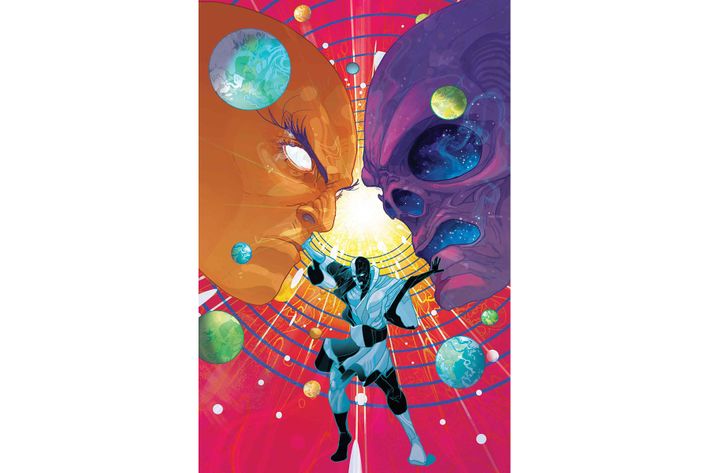
Ultimates2 by Al Ewing, Travel Foreman, and Dan Brown (Marvel)
When the first series to bear the name Ultimates debuted in 2002, it changed the superhero genre, in both print and film. It was chock-full of widescreen action and slick characterizations the likes of which comics had never seen. But after that initial run ran out, the various books named Ultimates were, for the most part, awful. Enter Al Ewing. One of the most playfully inventive writers of his generation, Ewing launched a new Ultimates last year and used it as a launching pad for some of the biggest ideas in superhero comics’ recent history. In the latest volume of his run, Ultimates2, he keeps that momentum going, offering up a nascent epic about the consequences of venturing outside the walls of existence, the mysterious appearance of snow in outer space, and the summary execution of an abstract concept by two other abstract concepts. Plus, the leader of the titular team is a queer Latina who can punch holes in reality. Travel Foreman’s blocky, often-outline-less pencils aren’t for everyone, but they’re admirably distinctive, and Dan Brown’s colors are as 2001: A Space Odyssey-ish as you’d hope they would be for a story like this one.
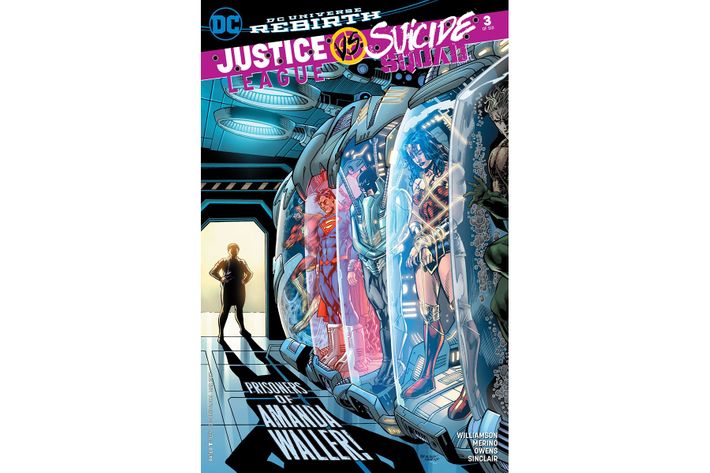
Justice League vs. Suicide Squad by Joshua Williamson, Jesus Merino, Andy Owens, and Alex Sinclair (DC)
I’ll be honest: When I first heard that DC Comics was putting out a series about the Justice League fighting the Suicide Squad, I groaned so hard that I woke my cats up from their naps. I mean, come on: Does the world really need another hyped-up comic about two super-teams fighting each other and inevitably reconciling to combat a greater evil?
Well, maybe need is too strong a word, but boy, Justice League vs. Suicide Squad is giving me a lot of things I want. So far, writer Joshua Williamson has cooked up a tautly exciting, logically consistent setup wherein the DC universe’s noblest heroes find themselves pitted against its most morally compromised erstwhile bad guys. Of course, a bigger threat looms in the background, but even before the real baddies showed up, this series was firing on all cylinders with sparked dialogue, vivid characterization, and seductively odd character pairings (who knew how much better the world would be once we got to see Green Lantern make fun of Captain Boomerang?). Plus, the upcoming issues will feature the much-needed return of Lobo to a top-tier superhero title, and if that’s not a good way to kick off what is sure to be a horrible year, I don’t know what is.

